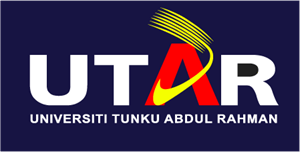
Universiti Tunku Abdul Rahman
Green Education Ranking
#919
About Universiti Tunku Abdul Rahman
Universiti Tunku Abdul Rahman (UTAR) was officially launched on 13 August 2002 as a not-for-profit private university providing affordable quality education. It is established under the UTAR Education Foundation and registered under the Malaysian Private Higher Educational Institutions Act 1996. Guided by its vision to be a global university of educational excellence, UTAR is highly reputed as one of the fastest growing private higher education institutions in the country with phenomenal growth in all aspects of its development since its inception. With the first intake of only 411 students in its Petaling Jaya campus in 2002, the University’s enrolment has now reached about 20,000 students with campuses located in Kampar, Perak and Bandar Sungai Long, Selangor. UTAR has graduated over 85,000 students since its inaugural convocation in 2005 and has made impressive strides in establishing a strong reputation as a comprehensive University with dedication to achieving excellence in teaching and research. The University currently offers over 140 academic programmes from Foundation Studies to Bachelor's, Postgraduate Diploma, Master’s, and PhD degrees in the fields of Accounting, Business and Economics, Actuarial Science, Mathematics and Process Management, Agriculture and Food Science, Arts, Social Sciences and Education, Creative Industries and Design, Engineering and Built Environment, Information and Communication Technology, Life and Physical Sciences, Chinese Studies, and Medicine and Health Sciences.
About World Green University Ranking
World
Green University Ranking 2024 is a
scholarly acknowledgment of educational
institutions standing at the forefront of
Education for Sustainable Development (ESD) and
leading the Green Education Transformation
(Education 6.0).
World Green University Ranking classifies
universities based on the six pillars of the
Holistic Green Education Framework, including
leadership governance, curriculum, innovation,
facilities, human capital, and community
partnerships.
The methodology employed in our Green Education Ranking is designed relying on the six pillars of the Holistic Green Education Framework. Each pillar contributes to the institution’s overall score, with a carefully assigned weight reflecting its significance in fostering sustainability. The total weight of the six pillars collectively amounts to 100%, signifying a balanced evaluation across critical dimensions of Green Education. Within each pillar, various standards are carefully assessed, with weights ranging between 1 and 2, emphasizing the varying importance of each criterion. This nuanced approach ensures a holistic evaluation and offers an insightful measure of universities commitment to Green Education Transformation (Education 6.0).
| # | Six Pillars of Green Education Framework (6Gs). | Weight |
|---|---|---|
| 1 | Green Educational Leadership | 14% |
| 2 | Green Curriculum | 17% |
| 3 | Green Innovation and Research | 19% |
| 4 | Green Facilities | 15% |
| 5 | Green Human Capital | 19% |
| 6 | Green Communities | 16% |
| Total | 100% |

